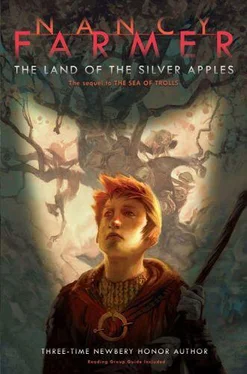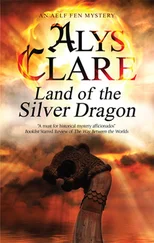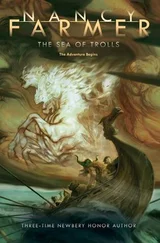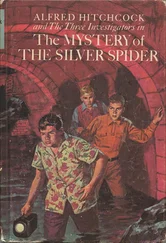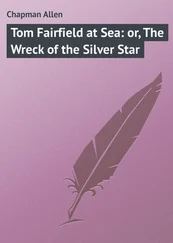Nancy Farmer - The Land of the Silver Apples
Здесь есть возможность читать онлайн «Nancy Farmer - The Land of the Silver Apples» весь текст электронной книги совершенно бесплатно (целиком полную версию без сокращений). В некоторых случаях можно слушать аудио, скачать через торрент в формате fb2 и присутствует краткое содержание. Город: New York, Год выпуска: 2009, ISBN: 2009, Издательство: Atheneum Books for Young Readers, Жанр: Фэнтези, Сказка, на английском языке. Описание произведения, (предисловие) а так же отзывы посетителей доступны на портале библиотеки ЛибКат.
- Название:The Land of the Silver Apples
- Автор:
- Издательство:Atheneum Books for Young Readers
- Жанр:
- Год:2009
- Город:New York
- ISBN:9781416907367
- Рейтинг книги:3 / 5. Голосов: 1
-
Избранное:Добавить в избранное
- Отзывы:
-
Ваша оценка:
- 60
- 1
- 2
- 3
- 4
- 5
The Land of the Silver Apples: краткое содержание, описание и аннотация
Предлагаем к чтению аннотацию, описание, краткое содержание или предисловие (зависит от того, что написал сам автор книги «The Land of the Silver Apples»). Если вы не нашли необходимую информацию о книге — напишите в комментариях, мы постараемся отыскать её.
A
bestseller.
The Land of the Silver Apples — читать онлайн бесплатно полную книгу (весь текст) целиком
Ниже представлен текст книги, разбитый по страницам. Система сохранения места последней прочитанной страницы, позволяет с удобством читать онлайн бесплатно книгу «The Land of the Silver Apples», без необходимости каждый раз заново искать на чём Вы остановились. Поставьте закладку, и сможете в любой момент перейти на страницу, на которой закончили чтение.
Интервал:
Закладка:
“We must go on,” said the Bard. He led the way down the other side of the hill, and soon all trace of human habitation disappeared. Jack’s spirits lifted. While he’d explored most of the land around the village, this was new and he liked it: No fields, no houses, and no evil-tempered sheep. Heather, gorse, and broom lay on either side, with woodlands crowding the valleys. The road was deeply rutted and crossed by streams. In some places it disappeared entirely. The king was supposed to maintain it, but Jack’s village was of no importance and no one bothered to improve its connection to the outside world.
Just think! I might see a king, Jack thought happily. Bebba’s Town was famous for Din Guardi, a fortress larger, older, and grander than any other in the kingdom. The royal court made its home there. Knights rode around on horses as grand as John the Fletcher’s, and sometimes they engaged in tournaments for the entertainment of the locals.
I’ve already seen a king, Jack thought. Ivar the Boneless, and what a disappointing wretch he was. A Saxon lord will certainly be more noble.
Their progress was slow. Giles Crookleg, in spite of his enthusiasm, had to rest frequently, and the Bard also tired easily. Lucy demanded constant attention. She was cross about her travel clothes, which were sensibly roomy and mud-colored to hide the dirt. “You have to hide your presence from your enemy,” Father explained. It was the beginning of a long, meandering story involving a giant called Bolster, whose wish was to enslave a princess to wash his clothes. At each stop Father pointed out a huge rock Bolster had thrown or a log he had used for a toothpick.
Jack didn’t mind the slowness of their trip. The longer it took, the more he could soak up new sights and smells. They passed a rookery of crows, gathering in the late afternoon. The birds came from all directions, in ones and twos and threes, until they covered a giant oak so thickly, you could hardly see the leaves. The air was full of caws, warbles, hiccups, and croaks, and the Bard listened attentively, though he didn’t reveal what he learned.
The pilgrims camped under an ash tree and ate onions, smoked eel, and travel scones. The scones had been made in a most unusual way. Pega had kneaded a dough of coarse wheat flour, butter, and salt. This she patted out onto a flat stone and attacked with a wooden mallet. She pounded and folded again and again until the dough was covered with little blisters and had a silky sheen. The scones were baked on a griddle and would not grow stale or hard, Pega said, for several weeks.
Now, under the tree with the fire snapping and the stars twinkling, the travel scones were as good as Yule cake. Even Lucy liked them. They drank cider, and Brother Aiden produced a sack of homemade ale, which Jack and Pega were allowed to taste. “You won’t find that anywhere,” said the Bard. “It’s from a secret recipe. You’ll never guess what’s in it, my girl.”
“I will so,” said Pega, but her eyebrows raised with surprise when she tasted it. Jack couldn’t begin to describe the flavor. It was like wind off a moor, the moon on a lake, a leaf uncurling in spring.
“This is incredible,” he exclaimed.
Brother Aiden preened visibly. “One of my ancestors was captured by a Scottish king. He was promised his life, the hand of a princess, and a bag of gold if he would reveal the recipe. He preferred to die.”
“That’s what I call a serious cook,” Pega said with approval.
“I feel like singing,” announced Father, and at once he gave them a hymn:
Praise we now the Fashioner of Heaven’s fabric,
The majesty of His might and His mind’s wisdom,
Work of the World-warden, Worker of all wonders,
How He the Lord of Glory everlasting,
Made first for the race of men Heaven as a rooftree,
Then made He Middle Earth to be their mansion.
Jack was astounded. Father never sang! Not once in his life could the boy remember it happening, yet his father’s voice was deep and good, a real bard’s voice.
“That was written by Brother Caedmon long ago. You performed it extremely well,” said Brother Aiden.
Father blushed like a child. “I learned it on the Holy Isle. No better place.”
“No better place,” agreed the little monk. “Give us more.” So Father sang about the Creation and the naming of animals by Adam and the sailing of Noah’s ark. He had memorized dozens of hymns. The wonder of it was how they had lain in his mind so long, waiting for this night.
“You do surprise me, Giles,” said the Bard. “All this time I thought Jack got his musical talent from his mother.”
“I learned the hymns of Caedmon because they were in Saxon and I could understand them,” Father explained. “Also, because he’d been a farm brat like me.”
“He used to run from parties, afraid someone would ask him to sing,” Brother Aiden remembered. “Went out to sleep with the cattle. Then, one night, an angel came to him in a dream and taught him that first poem. We should all be so lucky!”
Father told them about how he’d been taken to the Holy Isle as a child so the monks could cure his deformed leg. They failed, he said, but they’d given him a glimpse into a world where all was orderly and beautiful. For the first time ever Jack heard his father speak without a trace of self-pity. He was simply happy to relive that supreme experience of his life.
The Bard struck up his harp and began a ballad they all knew about a rascally elvish knight and a clever village girl. He took the part of the knight and Pega was the girl. Then they all sang together, except Lucy, who had nodded off to sleep. Eventually, they all stretched out under the ash tree. The stars shone between the branches like fruit on the great tree Yggdrassil.
That night Jack dreamed of music so fair, he thought his heart would break, but when he awoke at dawn, the memory of it had vanished.
Chapter Eleven
THE LADY IN THE FOUNTAIN
Bebba’s Town more than lived up to Jack’s expectations. The marketplace was crowded with tradesmen and animals. Rope-makers, tanners, and metalworkers displayed their wares. Woolen cloth, belt buckles, knives, iron griddles, and pottery lined the square, along with cages of wrens, finches, doves, and pigeons destined for someone’s dinner.
“Jewels fit for a queen,” shouted a metalworker, holding up a brooch studded with garnets as Lucy rode past on Bluebell. Lucy rewarded him with a smile. “By the Lady, she’s a bonny lass,” the man said to his companion, and they both gazed after her with admiring eyes.
Pega followed, her head bowed to hide her birthmark, but there was no concealing her scrawny form. The metalworkers looked away, and one spat to the side, a way of averting a curse.
Next to a grassy lawn a man boiled onions in an iron cauldron. He fished them out with a pair of tongs and lined them up on a table. The Bard bought a dozen, and they feasted on hot, steaming onions sprinkled with salt.
“This is delicious,” Father said, licking his fingers. “Who knew onions could taste so good?”
“It’s the spring air,” said the Bard.
“And the crowds,” said Brother Aiden. “I love being surrounded by people. Look there. You can see the outline of the Holy Isle.”
Jack squinted at the horizon and saw a pale shadow in the deeper gray of the sea. This was where Olaf and Rune, Sven the Vengeful and Eric Pretty-Face—and Thorgil—had slaughtered the innocent monks. It was hard to believe his friends had committed such atrocities, but they had. He must never forget it.
“How can one forgive people who are evil?” he said aloud.
If Brother Aiden was surprised by the sudden shift in conversation, he didn’t show it. “We must forgive our enemies. If someone strikes us, we must turn the other cheek. Eventually, God’s goodness will prevail.”
Читать дальшеИнтервал:
Закладка:
Похожие книги на «The Land of the Silver Apples»
Представляем Вашему вниманию похожие книги на «The Land of the Silver Apples» списком для выбора. Мы отобрали схожую по названию и смыслу литературу в надежде предоставить читателям больше вариантов отыскать новые, интересные, ещё непрочитанные произведения.
Обсуждение, отзывы о книге «The Land of the Silver Apples» и просто собственные мнения читателей. Оставьте ваши комментарии, напишите, что Вы думаете о произведении, его смысле или главных героях. Укажите что конкретно понравилось, а что нет, и почему Вы так считаете.
